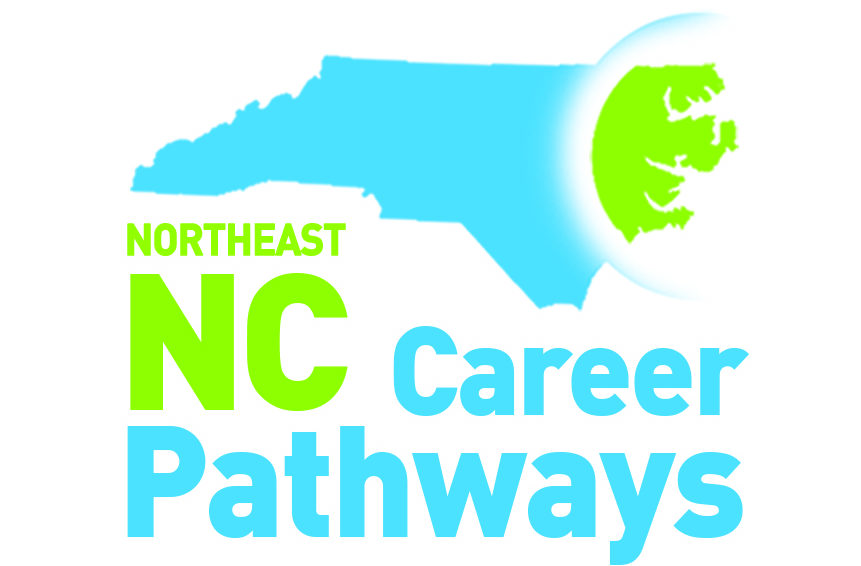In the summer of 2012 four school districts in the Northeast Region of North Carolina (Beaufort, Halifax, Martin and Washington) volunteered to participate in a pilot project to develop career pathways that align with high growth business sectors using the Pathways to Prosperity (PtP) model developed through the partnership of the Harvard School of Education and Jobs for the Future.
In July of 2013 the three workforce development boards (Region Q, Turning Point and Northeast) that serve the Northeast Region agreed to be the lead intermediaries for the regional PtP work.
In September of 2013 a regional PtP Leadership Council (LC) was established. The primary responsibilities of the LC include choosing the high growth business sectors on which to develop regional career pathways, authorizing strategic planning committees to develop the pathways, and approving the pathway reports. Four pathways have been addressed, beginning with Health Care in 2016, Advanced Manufacturing in 2016, Business Support Services in 2019 and Agriscience/Biotechnology in 2020.
Many states and entities have worked to develop career pathways for a number of years. North Carolina’s pathway initiative contains a set of required elements that have been developed with and approved by the state’s primary workforce development partners. These elements are foundational to Certified Career Pathways in the state and endorsed by the NC Works Commission.
In NENC, this effort has grown to now represent 20 counties and the 22 Local Education Agencies (LEAs), 4 Charter Schools, 1 Regional High School, 9 Community Colleges, 10 NCWorks Career Centers, and 4 universities. A variety of employers and economic development agencies have also been a part of this process.
The industry sectors were first chosen by determining their high-growth outlook. At this time, two of the four have been certified by the state (Health Care and Advanced Manufacturing). These pathways represent a regional framework so partners within local areas (i.e., College of the Albemarle and the Northeastern Workforce Board and its 7 LEA’s) are encouraged to work together on developing their own implementation strategies so that clients/students have definitive resources to use within their career pathways initiation and/or continuation.
Visit your nearest NCWorks Career Center to receive more information on these pathways and how you may qualify for additional workforce assistance.
